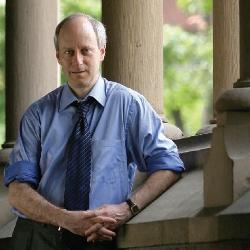Bringing justice back

Harvard Professor of Government Michael Sandel’s compelling new book is a look back at previous theories of justice and a timely reflection on the kind of political philosophy we need right now. By Edward O’Hare.
Every society has had a moral code, a set of rules or system of laws that allowed its people to live on fair terms. At the same time, philosophers have always strived to formulate a better social and political system, one that allows for both greater rights and liberties and increased respect and cooperation between citizens. In other words, the arguments of all political philosophers revolve around a single question: what is justice? Now Michael J. Sandel, Professor of Government at Harvard University, makes the case for his own conception of justice in this absorbing and extremely readable new book.
Sandel’s book is the end-product of a career’s worth of contemplation. For over thirty years he has lectured on justice and wrestled with the implications of the many competing philosophical theories. The justice course he teaches has become legendary and remains one of the most popular on offer at Harvard, with over a thousand students enrolling annually. Although he has published many books, this is the first time Sandel has devoted an entire work specifically to the subject of justice.
Justice takes the whole tangled web of philosophical thought on this topic and puts it into a manageable order. Sandel believes that all theories of justice can ultimately be reduced to three positions and each chapter compares and contrasts different aspects of these. The first holds that justice consists in the maximization of utility, with a just society being that in which the greatest possible number enjoys the greatest possible happiness. Then there are those who believe that real justice means giving citizens the freedom of choice to decide on their own way of life. Finally, there is the theory that a just society is one in which virtue is cultivated and which promotes the common good.
Reading Justice one can see why Sandel has been described as one of the most popular teachers on the planet. He has an impressive ability to explain some of the most abstruse philosophical concepts in an easygoing manner. Whether he is expounding on Kant’s categorical imperative or the teleological principle underlying the Nicomachean Ethics, he is admirably clear and precise. He takes some of the most complicated masterpieces of political philosophy and gives us their salient points without doing a disservice to the work in question. Justice is only 270 pages long, but you come away from this book with more knowledge than you would from many twice or three times its length.
The success of Justice partly results from Sandel’s capacity for finding everyday situations which allow the reader to see the human relevance of each theory. The corrupt behaviour of many people in the fallout from Hurricane Charley illustrates the limits of Libertarianism, Bill Clinton’s infamous apology is used to discuss Kant’s notion of the morally permissible lie while cheerleading and the use of golf carts in professional games bring us closer to comprehending Aristotle. Unlike many other writers, Sandel keeps his examples brief and vivid and this helps us to follow his case for or against a particular theory.
What is even more impressive is Sandel’s ability to give strong, compelling accounts of theories of justice he does personally not agree with. He admits that there is still much to be learned from Utilitarianism, even though he finds its basic principle flawed and even dangerous. There are two chapters devoted to the hypothetical social contracts put forward by Immanuel Kant and John Rawls, and it comes as quite a surprise that, after admiring the brilliance and originality of their ideas, Sandel then attacks them. However, a book like this cannot be rated only on the basis of how well the author writes about earlier philosophical theories. What conclusions has Sandel’s thirty year contemplation of justice led him to?
Sandel claims that we are not just individuals with free choice who take on responsibilities and obligations through our own actions. The lives of each of us takes its place within a greater narrative. Rather than starting life morally unencumbered, our racial heritage, family and the religious and political tradition to which we belong are all aspects of our identity which confer obligations and responsibilities upon us the moment we are born.
Along with Aristotle, Sandel believes that rights can only be distributed once the common good has been decided upon, and achieving this requires that we become political animals. He argues that the political neutrality encouraged by previous generations of political philosophers has allowed religious fundamentalists and far-right conservatives to take the upper hand and he salutes Barack Obama’s welcoming in of a new age of morally and ethically charged political discourse.
Sandel commends Obama for the way he has reintroduced questions of tolerance, values, fairness and freedom of choice into the public arena and his promise of a new life of greater meaning and purpose for everyone. Justice, Sandel writes ‘is not only about the right way to distribute things. It is about the right way to value things.’ What the world needs, he believes is ‘a new politics of the common good’ that will reinvigorate people’s value systems, make them see the importance of citizenship, put a limit on the power of the markets and bring about a more equal society. Only a politics of moral engagement can make the world just.
Justice: What’s the Right Thing to Do?
By Michael J. Sandel
Penguin pp 270 EURO 13.20
